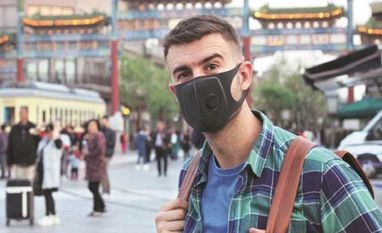G20 nations pledged a "united front" on Thursday in the fight against coronavirus, saying they were injecting $5 trillion into the global economy to counter the pandemic amid forecasts of a deep recession.
US President Donald Trump and Russian President Vladimir Putin joined the emergency videoconference chaired by Saudi Arabia's King Salman, who called for coordinated action while facing pressure to end an oil price war between Riyadh and Moscow that has roiled energy markets.
The talks come amid criticism that the G20 has been slow to address the Covid-19 pandemic, which has left more than 21,000 dead worldwide according to official data, and triggered financial shock waves as more than three billion people are locked down.
"We are strongly committed to presenting a united front against this common threat," the leaders said in a joint statement after the summit. "We are injecting over $5 trillion into the global economy, as part of targeted fiscal policy, economic measures, and guarantee schemes to counteract the social, economic and financial impacts of the pandemic."
As concerns mount for poorer countries without access to capital markets or adequate health facilities, G20 leaders also pledged to work with bodies such as the International Monetary Fund to deploy a "robust" financial package to support developing nations.
"It is our responsibility to extend a helping hand to developing countries and (the) least developed countries to enable them to build their capacities and improve their infrastructure to overcome this crisis and its repercussions," King Salman said.
The world's 20 most industrialised countries are scrambling to defend their virus-wracked economies amid forecasts they will likely plunge into a recession.
On Wednesday, the financial ratings agency Moody's estimated the G20's overall gross domestic product would contract by 0.5 per cent this year, with the US economy shrinking by 2.0 percent and the eurozone by 2.2 per cent.
This week, French President Emmanuel Macron and his Chinese counterpart Xi Jinping pushed for an emergency G20 summit to limit the impact of the pandemic.
The lack of immediate action stood in contrast to the 2008 financial crisis, when the group quickly swung into action to mobilise assistance for vulnerable countries.
Talk of global coordination has yet to resonate under Trump's isolationist presidency.
On Wednesday, US Secretary of State Mike Pompeo took aim at China, saying the top diplomats of the Group of Seven agreed with him that Beijing was waging a "disinformation" campaign about the pandemic.
At the G7 talks, a day before the G20 summit, Pompeo alleged Beijing was engaged in a social media campaign that included conspiracy theories that the US was behind the virus, which was first detected in the Chinese metropolis of Wuhan.
"If G20 leaders can put politics aside and reach a collective G20 agreement, countries have a better chance of success or of delivering more stimulus than on their own," Markus Engels, from the Global Solutions Initiative, a network of think tanks, told AFP.
"Coordination among the G20 sends a strong message of unity and confidence, both of which are urgently needed now." Crude oil prices -- hammered by the outbreak's impact on demand as well as by a price war between Saudi Arabia and Russia -- were also expected to be at the centre of the discussions.
Riyadh faces pressure from Washington to row back on its decision to hike production and offer the biggest price cuts in two decades, in retaliation for Russia's refusal to tighten supply as the virus sapped demand.
On Wednesday, Pompeo urged Saudi Crown Prince Mohammed bin Salman to "rise to the occasion" and "reassure global energy and financial markets".
However, the Kremlin said "the oil topic" was off the table.
The G20 members were joined by leaders from other affected countries including Spain, Jordan, Singapore and Switzerland as well as international organisations such as the United Nations and the World Bank.
Unlock 30+ premium stories daily hand-picked by our editors, across devices on browser and app.
Pick your 5 favourite companies, get a daily email with all news updates on them.
Full access to our intuitive epaper - clip, save, share articles from any device; newspaper archives from 2006.
Preferential invites to Business Standard events.
Curated newsletters on markets, personal finance, policy & politics, start-ups, technology, and more.
)